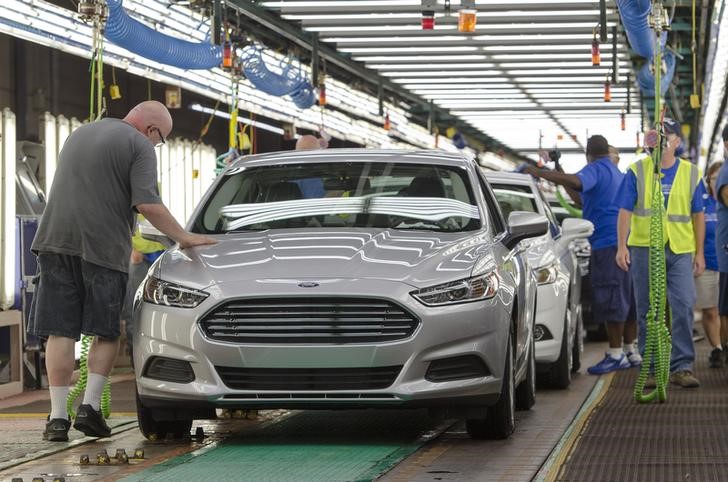This post was originally published on this site
https://i-invdn-com.akamaized.net/trkd-images/LYNXMPEH1H1U0_L.jpg
WASHINGTON (Reuters) – Ford Motor (NYSE:F) Co is recalling 153,000 older trucks that may have had obsolete Takata air bag modules installed in collision and theft repairs after the Takata recall was completed, the automaker said on Thursday.
The second-largest U.S. automaker identified 144,340 U.S. 2004-06 Ford Ranger trucks and about 8,800 in Canada that could have obsolete Takata parts. Ford said it could not locate 45 inflators that could have been installed and was recalling all of the vehicles “at the request of the U.S. National Highway Traffic Safety Administration” (NHTSA).
Ford also said on Thursday it was separately recalling a group of 1,100 vehicles from the 2004-2011 model years that may also have had obsolete Takata service parts.
Last month, Ford said it would comply with an earlier NHTSA request to recall 3 million vehicles with potentially defective driver-side Takata air bags and would take a $610 million charge.
NHTSA rejected a formal petition from Ford to avoid a recall.
The defect, which leads in rare instances to air bag inflators rupturing and sending potentially deadly metal fragments flying, prompted the largest automotive recall in U.S. history of more than 67 million inflators. Worldwide, about 100 million inflators installed by 19 major automakers have been recalled.
Also last month, NHTSA said at least 17 million U.S. vehicles with Takata air bags remain unrepaired.
Takata inflators have resulted in the deaths of at least 27 people worldwide and 18 in the United States, and over 400 reported injuries.
Two people died in Takata air bag ruptures in previously recalled 2006 Ford Ranger vehicles, with the most recent death in 2017.
In November, NHTSA said it was rejecting a petition filed by General Motors (NYSE:GM) to avoid recalling 5.9 million U.S. vehicles with Takata inflators. GM said later it was taking a $1.1 billion charge as a result of the recall.

